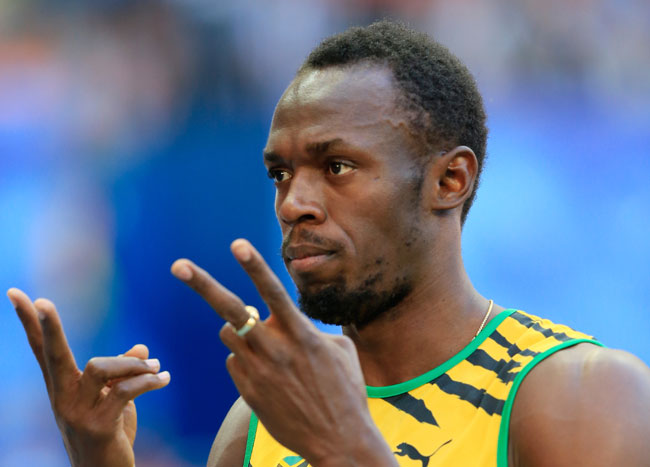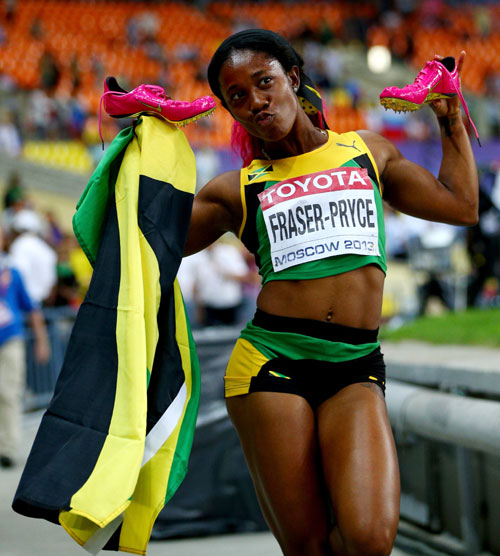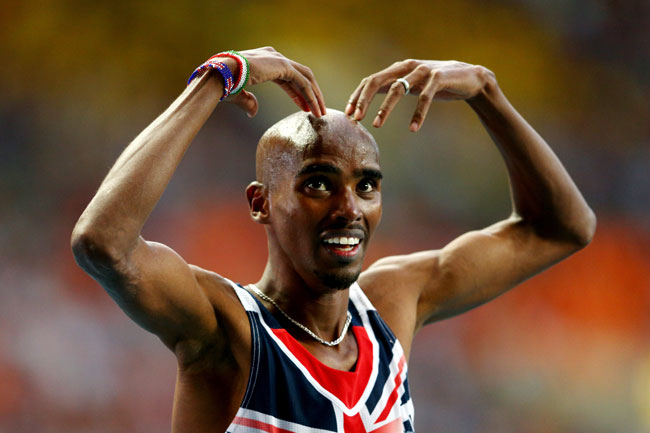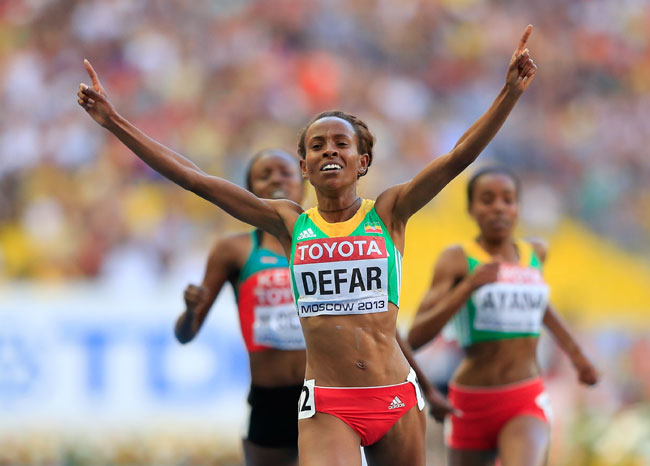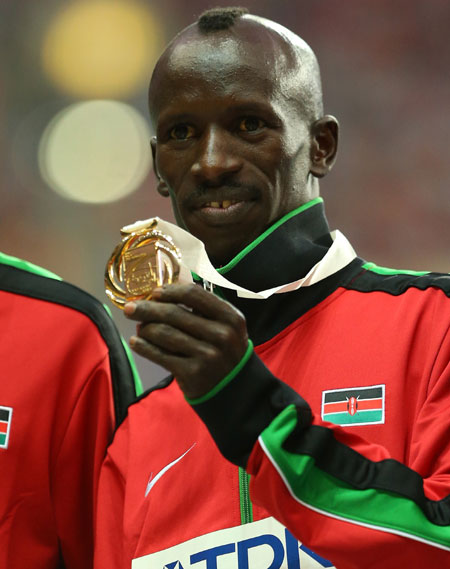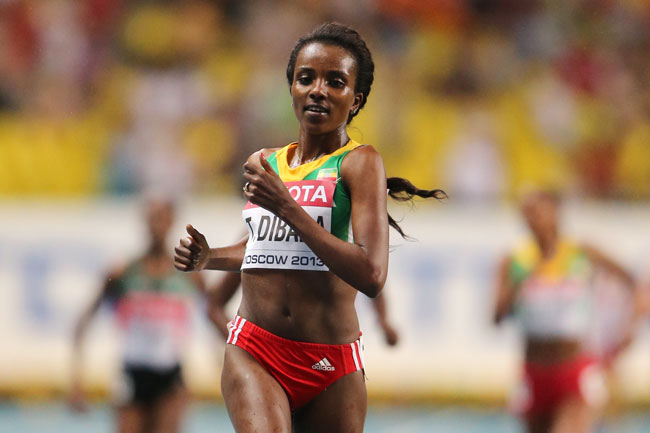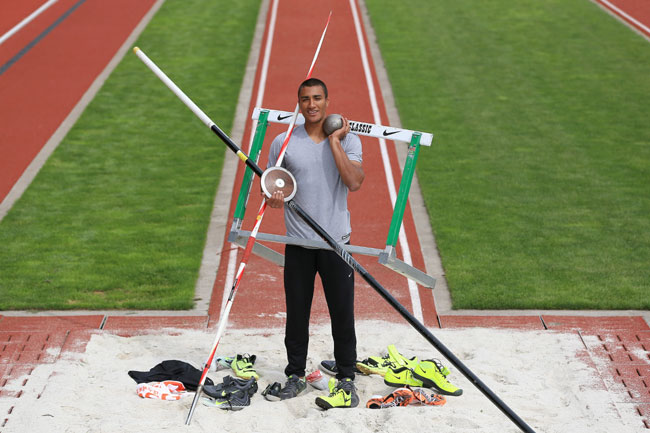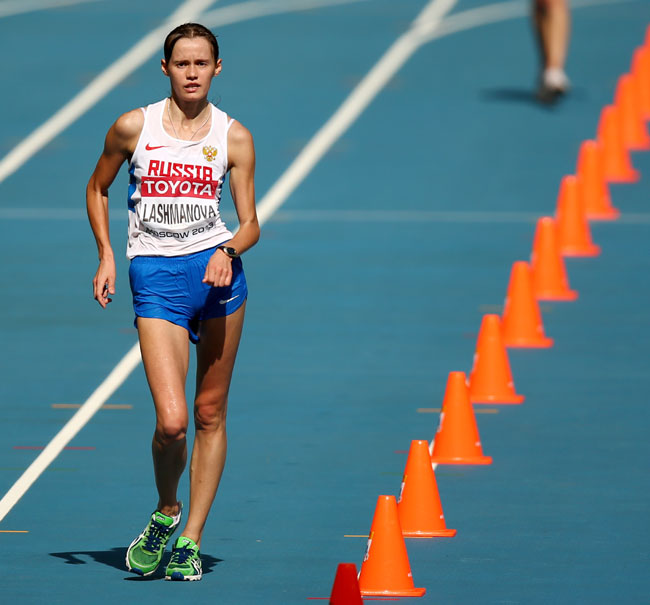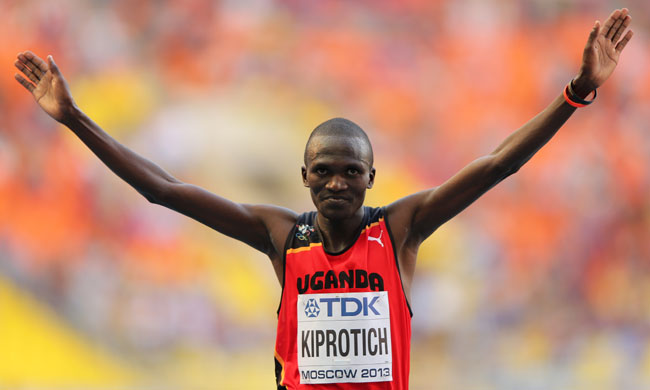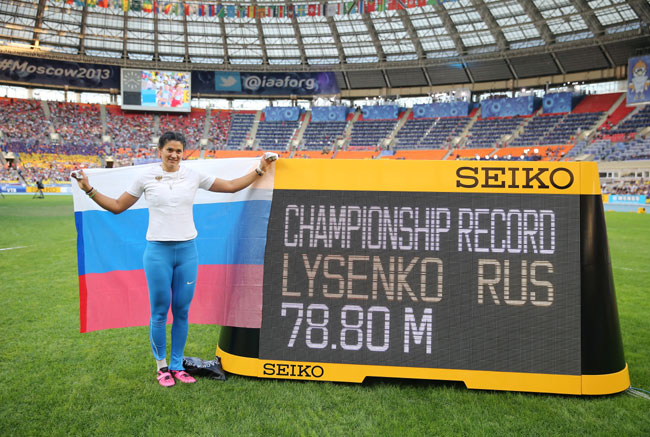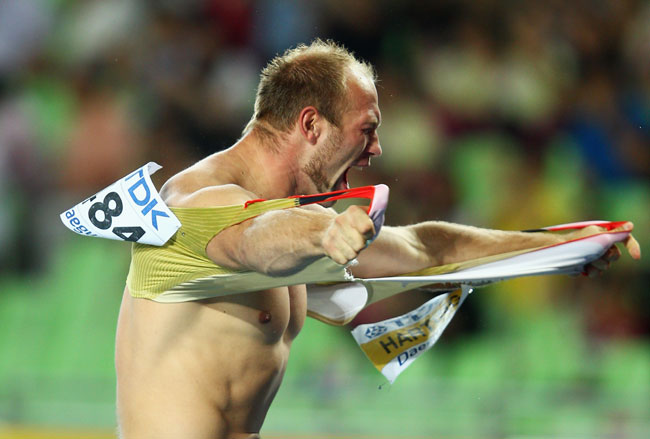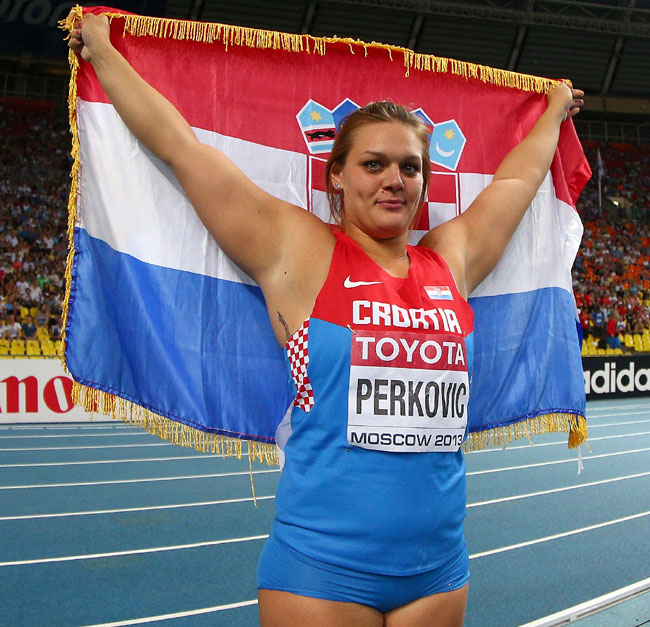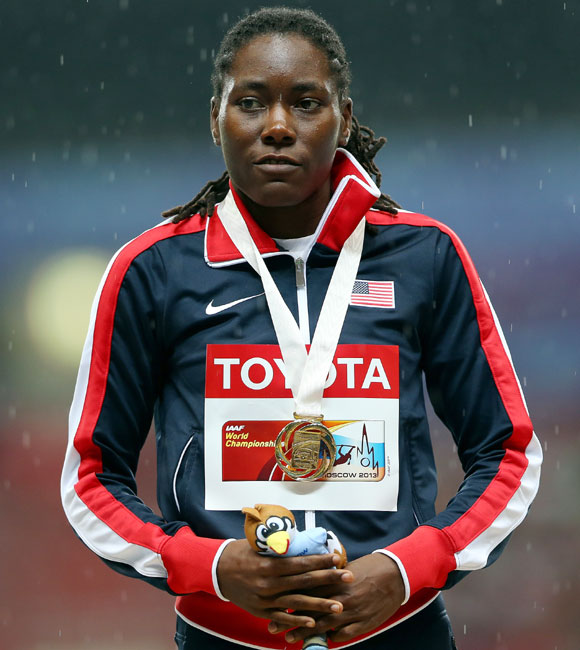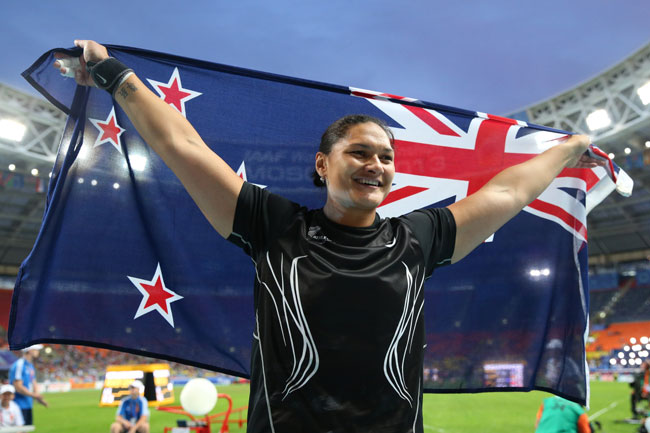 | « Back to article | Print this article |
Bolt achieved the short distance 'treble'
A day after the World Championships, Bikash Mohapatra looks at those few athletes who successfully repeated their gold medal-winning efforts at the London Olympics in Moscow.
One is the biggest event in their sport. The other, the biggest event across sports.
While winning the World Championships is a huge achievement in itself, the only thing that probably surpasses it is a gold medal at the Olympics.
And athletes who succeed in winning both earn themselves legendary status.
No list in contemporary athletics can start without the mention of Usain Bolt.
Bolt did what he was meant to do in Moscow, complete the 100-200 metres double. The Jamaican not only repeated his feat of London but also achieved the double for the fourth time in his illustrious career - after similar efforts in the Beijing Olympics and the Berlin World Championships (2009).
In fact the 26-year-old completed a treble - including the 4 x 100 metres relay - on the said occasions.
Bolt won both the 100 metres (9.77 seconds) and 200m (19.66s) with season-best efforts.
Fraser-Pryce repeated her effort in 100 metres
Shelly-Ann Fraser-Pryce is to women's sprint what Bolt is to the men's.
And like her compatriot, the 26-year-old repeated her 100 metres triumph at the London Olympics with a world leading time of 10.71 seconds.
Fraser-Pryce was used to winning the 100 metres, having won the title both at the 2008 Olympics in Beijing and the 2009 worlds at Berlin. However, an icing on her cake was a maiden title at the 200 metres.
The Jamaican also anchored her country to a third gold in the 4x100 metres relay.
Farah repeated his London 'double' at Moscow
Mo Farah made a first impression by winning the 5,000 metres gold at the World Championships at Daegu in 2011.
A year later, the Somali-born British athlete endeared himself to home fans by completing the 5,000-10,000 metres double at the London Olympics.
And by repeating the feat at Moscow, Farah has earned himself legendary status.
The 30-year-old now owns five global titles, two more than any British athlete in history.
Farah is also only the second male athlete, after Ethiopian Kenenisa Bekele, to achieve the 'double-double' at the Olympics and the following World Championships.
Need we say more.
Defar repeated as 5, 000 metres champ
It took Meseret Defar six years but she never lost hope.
After all, it had taken the Ethiopian eight years to repeat her gold medal-winning feat in the 5,000 metres at the Athen Olympics in 2004.
A year after her victorious run in London, the 30-year-old completed the Olympic-World double, in a time of 14:50:19 seconds.
Kemboi owns the 3000 metres steeplechase
Ezekiel Kemboi owns the 3000 metres steeplechase.
The 31-year-old timed 08 min 06.01 seconds to win his third straight World Championships gold, coming close on the heels of his second Olympic gold medal triumph in London.
In doing so, Kemboi became one of only three men - besides Reuben Kosgei and Brimin Kipruto - to have won both Olympic and World golds in the 3000 metres steeplechase.
Dibaba, the queen of long distance running
Tirunesh Dibaba is the queen of long distance running.
Three gold medals in the 10,000 metres at the World Championships, two more over the same distance at the Olympics.
Add to that a gold medal at the 5,000 metres in the Helsinki Worlds (2005) and the Beijing Olympics (2008) and the 27-year-old's credentials are established.
Injury kept her out of the 2011 World Championships in Daegu (South Korea), else there would surely have been an addition to the list.
In Moscow, she clocked 30 minutes, 43.37 seconds to win well clear of Kenya's Gladys Cherono (30:45:17).
Eaton dominated in the decathlon
Ashton Eaton won silver in decathlon at the World Championships in Daegu two years ago, losing to compatriot Trey Hardee.
He came back well, winning the the event at the London Olympics last year, besting Hardee.
In Moscow, the 25-year-old continued his grip over the event, totalling 8,809 points, to win comfortably.
Lashmanova's win stretched a Russian winning streak
Elena Lashmanova is the World record holder in the 20 km walk, having achieved the feat in her Olympic debut.
At the London Games last year, the Russian won fairly comfortably, besting three-time World champion compatriot Olga Kaniskina.
In Moscow, in front of her home fans, the 21-year-old crossed the line in 1 hour, 27 minutes and eight seconds to best compatriot Anisya Kirdyapkina.
Lashmanova's win stretched a Russian winning streak at the worlds that dates back to the 2001 edition at Edmonton (Canada).
Kiprotich won the marathon for Uganda
Stephen Kiprotich's gold medal feat in the marathon in Moscow made him the first non-Kenyan winner since 2005.
At the London Games last year, Kiprotich won Uganda's first gold medal in 40 years.
The 24-year-old, inspired in part by John Akii-Bua, the only previous Ugandan Olympic gold medalist - the winner of the 400 metres hurdles in the 1972 Olympics in Munich - won fairly comfortably.
Kiprotich had it pretty easy in Moscow as well.
Five years later...Lysenko is a double champion
Five years after failing a dope test, Tatyana Lysenko is an Olympic and World champion.
At the London Games, the Russian won the hammer throw with a new Olympics record (78.18 metres).
In Moscow, the 29-year-old had little trouble in retaining the title she won in Daegu two years back.
Lysenko's throw (78.80 metres) was not only a Russian national record, but also a Championship record.
Harting justified his 'favourite' tag
Robert Harting took some time to win his maiden Olympic title.
A throw of 68.27 metres was enough to best defending discus champion Gerd Kanter of Estonia.
Coming into the event in Moscow, the German was the favourite, having won the gold medal in both Berlin and Daegu.
He didn't disappoint, winning with a throw of 69.11 metres on his fourth attempt.
Perkovic is on a year-long unbeaten streak
Discus thrower Sandra Perkovic is on a year-long unbeaten streak.
In the period, the 23-year-old's personal best throw (69.11 metres) - that also happened to be a national record - helped her win her maiden Olympics title in London.
In Moscow, the Croat's throw of 67.99 metres helped maintain her streak.
Reese had fortune favouring her
Brittney Reese only reached the women's long jump final in Moscow as the last qualifier.
However, a jump of 7.01 metres, on her second attempt, helped the American take her third straight World title.
The 26-year-old had cleared 7.12 metres for her maiden Olympics gold medal last year.
Adams in Bubka's footsteps
The legendary Sergei Bubka won the pole vault World title six straight times.
Valerie Adams is following in the Ukrainian's footsteps, her shot put gold medal in Moscow being her fourth straight win at the worlds.
Add to it the fact that the New Zealander has won two Olympics golds - Beijing and London - and it gives her a legendary status she deserves.
